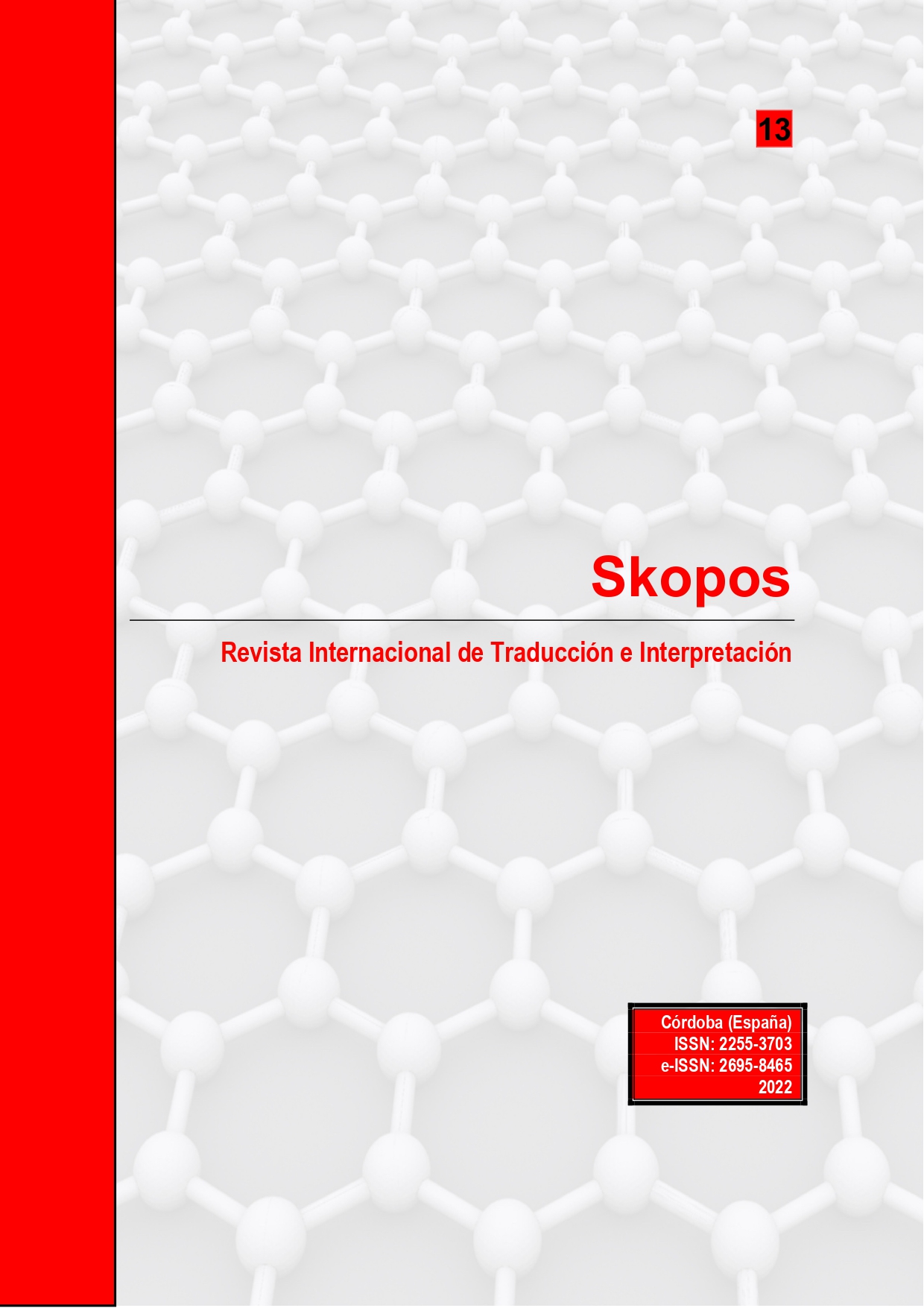Sensorimotor concepts in political discourses from a contrastive linguistic perspective
observations on the translation of sensorimotor concepts from Spanish into German, French and Italian
DOI:
https://doi.org/10.21071/skopos.v13i.15163Abstract
Sensory and motor concepts represent two central categories of human cognition and are therefore, as studies from the field of cognitive linguistics have proven, firmly anchored in the lexical inventory of many languages. Perceptual expressions take on various pragmatic-discursive functions in language use, they often function as discourse markers, for example. The present article, however, deals with the persuasive function of sensorimotor concepts in political discourse. The aim of this purely qualitative study is to investigate translation strategies of the rhetorical potential of certain sensorimotor concepts, which results from the interplay of lexicon and morphosyntax, on the basis of the EUROPARL corpus from a contrastive-linguistic perspective. Spanish functions as the source language in our investigation, while the target languages are, on the one hand, the “Romance sister languages” French and Italian and, on the other hand, a typologically more distant language, namely German.
Downloads
Published
How to Cite
Issue
Section
License
Política propuesta para revistas que ofrecen acceso abierto. Aquellos autores/as que tengan publicaciones con esta revista, aceptan los términos siguientes:
- Los autores/as conservarán sus derechos de autor y garantizarán a la revista el derecho de primera publicación de su obra, el cuál estará simultáneamente sujeto a la Licencia de reconocimiento de Creative Commons que permite a terceros compartir la obra siempre que se indique su autor y su primera publicación esta revista.
- Los autores/as podrán adoptar otros acuerdos de licencia no exclusiva de distribución de la versión de la obra publicada (p. ej.: depositarla en un archivo telemático institucional o publicarla en un volumen monográfico) siempre que se indique la publicación inicial en esta revista.
- Se permite y recomienda a los autores/as difundir su obra a través de Internet (p. ej.: en archivos telemáticos institucionales o en su página web) antes y durante el proceso de envío, lo cual puede producir intercambios interesantes y aumentar las citas de la obra publicada. (Véase El efecto del acceso abierto).






